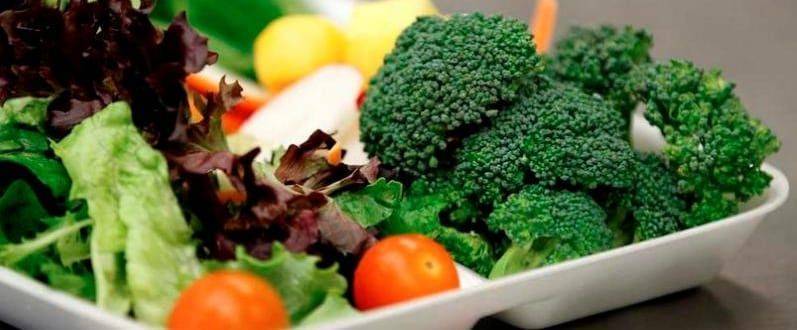
Οι σαλάτες και το σπανάκι, που πουλιούνται έτοιμα κομμένα μέσα σε πλαστική σακούλα, αυξάνουν σημαντικά την πιθανότητα μόλυνσης από το βακτήριο σαλμονέλα, σύμφωνα με μια νέα μελέτη επιστημόνων στη Βρετανία, με τη συμμετοχή ενός νεαρού Έλληνα ερευνητή.
Οι εργαστηριακές αναλύσεις έδειξαν ότι οι χυμοί που εκκρίνονται από τα κομμένα φύλλα, λόγω της υγρασίας και των θρεπτικών συστατικών τους, αποτελούν πρόσφορο έδαφος για την ανάπτυξη του επικίνδυνου μικροοργανισμού, που μπορεί να αποβεί ακόμη και θανατηφόρος.
Οι ερευνητές επίσης ανακάλυψαν ότι η παρουσία των χυμών κάνει πιο επιθετική τη σαλμονέλα και έτσι αυξάνει τον κίνδυνο μόλυνσης του καταναλωτή. Ο κίνδυνος μπορεί να αυξηθεί δραματικά έως 2.400 φορές.
Οι ερευνητές, με επικεφαλής την μικροβιολόγο δρα Πριμρόουζ Φριστόουν του Πανεπιστημίου του Λέστερ και τον διδακτορικό ερευνητή Γιάννη Κουκκίδη, έκαναν τη σχετική δημοσίευση στο περιοδικό εφαρμοσμένης και περιβαλλοντικής μικροβιολογίας “Applied and Environmental Microbiology”.
Οι επιστήμονες ανακάλυψαν ότι ακόμη και μικροποσότητες χυμού όχι μεγαλύτερες από το ένα διακοσιοστό ενός κουταλιού του γλυκού, οι οποίες διαφεύγουν από τα κομμένα φύλα της σαλάτας και του σπανακιού και μένουν μέσα στην πλαστική σακούλα, διευκολύνουν τη σαλμονέλα να πολλαπλασιασθεί, ακόμη κι όταν η συσκευασία μπαίνει στο ψυγείο.
Μάλιστα, το βακτήριο προσκολλάται τόσο γερά στα κομμένα φύλλα, που δεν φεύγει με το πλύσιμο από τον καταναλωτή. Αρκούν λίγα κύτταρα σαλμονέλας στην αρχή της συσκευασίας για να έχουν αυξηθεί σε πολλές χιλιάδες, εωσότου ο καταναλωτής φάει το προϊόν ή έως την ημερομηνία λήξης του. Τα αρχικά 100 βακτήρια σαλμονέλας μπορούν να έχουν γίνει 100.000 μέσα σε πέντε μόνο μέρες από το αρχικό κόψιμο των σαλατών για να συσκευασθούν.
Οι ερευνητές επεσήμαναν την ανάγκη τα εν λόγω συσκευασμένα κομμένα φρέσκα λαχανικά να τρώγονται όσο γίνεται πιο γρήγορα μετά το άνοιγμά τους. Μόλις ανοίγει η πλαστική σακούλα που τα περιέχει, τα βακτήρια της σαλμονέλας αναπτύσσονται ακόμη πιο γρήγορα από ό,τι όταν βρίσκονται στο ψυγείο.
Μάλιστα, οι ερευνητές βρήκαν ότι η σαλμονέλα είναι δυνατό να αναπτυχθεί ακόμη κι όταν η ψύξη του ψυγείου βρίσκεται στους 4 βαθμούς Κελσίου και όχι στους 5,2 βαθμούς, όπως πιστευόταν έως τώρα.
Τα τελευταία χρόνια έχουν παρουσιαστεί διάφορα περιστατικά τροφικής δηλητηρίασης από σαλμονέλα και κολοβακτηρίδια σε φρέσκες σαλάτες τόσο στην Ευρώπη, όσο και στις ΗΠΑ. Το γεγονός αυτό, κατά τους επιστήμονες, σημαίνει ότι οι παραγωγοί και συσκευαστές τέτοιων φρέσκων συσκευασμένων προϊόντων πρέπει να τηρούν τις υψηλότερες προδιαγραφές υγιεινής.
Η μόλυνση των σαλατών και λαχανικών από σαλμονέλα μπορεί να συμβεί από την επαφή τους με ζώο ή έντομο, από το χώμα, από μολυσμένο νερό κατά την άρδευση του χωραφιού ή από μολυσμένο εξοπλισμό ή μολυσμένα χέρια εργαζομένων κατά την κοπή και συσκευασία του προϊόντος.
Σε κάθε περίπτωση, σύμφωνα με τους ειδικούς, όλα τα φρέσκα προϊόντα, συσκευασμένα και μη, χρειάζονται πολύ καλό πλύσιμο, προτού καταναλωθούν. Συνήθως οι συσκευασμένες σαλάτες έχουν προηγουμένως πλυθεί με χλωριωμένο νερό. Το χλώριο μειώνει μεν την παρουσία των παθογόνων μικροοργανισμών, αλλά δεν την εξαλείφει.
Οι ερευνητές συνέστησαν οι καταναλωτές να αγοράζουν σαλάτες που έχουν πρόσφατα κοπεί και να τις τρώνε αυθημερόν, όταν τις αγοράζουν. Ερευνητές στις ΗΠΑ που έχουν κάνει δειγματοληψίες, βρήκαν ότι το 0% έως 3% των συσκευασμένων σαλατών είναι μολυσμένες, σύμφωνα με το BBC.
O επίσης ελληνικής καταγωγής Κίμωνας Ανδρέας Καρατζάς, λέκτορας μικροβιολογίας τροφίμων στο βρετανικό Πανεπιστήμιο του Ρέντινγκ, τόνισε ότι οι καταναλωτές πρέπει να προτιμούν τις άκοπες σαλάτες από τις εκ των προτέρων κομμένες.
Πηγή: Εθνος Online

No Comments